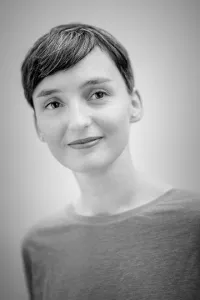
Research Project Title
Knowledge Production in the Post-Conflict Society of Former Yugoslavia: From Documentary to Legal Evidence
Research abstract
Filmmakers, visual artists and photographers, who are active in conflict and post-conflict societies, such as the former Yugoslav countries, often engage in investigations. They document ongoing violations of human rights or visualize past, unresolved crimes. Intentionally or not, their work can lead to the creation of evidence at the International Criminal Tribunal for the Former Yugoslavia or state courts. Reversely, established criminal records are put in use as a way of reflecting and contextualizing publicly unknown or disputed facts. Sometimes it is difficult to tell where a visual practice stops and a legal evidence begins, or the other way around.
By eye-witnessing military or militia abuse of power, image-makers become integral to the dispositif of modern warfare. Their images come under careful scrutiny of critical scholars, whose mode of operation is characterized by suspicion of the authority of established truths. Post-structural theories rightly argue for skepticism of master narratives and media representations, but, when used with disregard to specific socio-political considerations immanent to analyzed images of war, can sow doubt about non-negotiable points of reference of a country’s past and its history of war. The resulting performance of discourse resembles a performance of ideology for its own sake. As such it aligns with anti-epistemology as defined by Matthew Fuller and Eyal Weizman (2021). When the applied critical theory shares characteristics with anti-epistemology, it plays into hands of radical ethno-nationalists. In those instances, it has a potential to accelerate further fragmentation of ethnically diverse societies such as present Bosnia and Herzegovina. Against this background I am interested in studying visual practices which contribute to knowledge production as a factor of stability in multicultural societies.
Images which help secure evidence in time when there is no political will or ability yet to engage official public bodies to investigate or reinvestigate war crimes in the former Yugoslavia will be carefully analyzed.
Events during the scholarship (lectures, etc.):
Makarević, A. 2022. Master Class and a Film Debate. Non-Representational Images of War in Films. Eastern Neighbors Film Festival, November 24, The Hague.
Makarević, A. 2022. Ethical Considerations of Visual Practices in the Post-Conflict Society of Former Yugoslavia. Glowing Globe Symposium. Ethics and Aesthetics in Post-Digital Art, University of Rijeka, October 13, Rijeka.
Makarević, A. 2022. Knowledge Production in the Post-Conflict Society of Former Yugoslavia: From Documentary to Legal Evidence. (Post-)Yugoslav History, Society and Culture. Workshop for Networking and Exchange, University of Vienna, September 30, Vienna.
-
Biografische Angaben
Asja Makarević holds a PhD degree in Film Studies at the Goethe University, Frankfurt. Her research addresses the ongoing "post-war" condition of the former Yugoslav countries and concomitant emergence of "non-representational" images of war in post-Yugoslav film. From 2009 till 2017 Asja managed Talents Sarajevo, the Sarajevo Film Festival's networking and training platform for emerging film professionals from Southeast Europe and Southern Caucasus. In the past year Asja worked as a University Assistant in the Department of Media and Film Studies at the Vienna Film Academy, at mdw University for Music and Performing Arts. As of October 2022 Asja conducts her post-doc research at the Goethe University, Frankfurt. -
Publikationen
Makarević, A. Beyond Post-War Cinema. Historical Experience in Post-Yugoslav Film. Amsterdam University Press (pending peer review, 2022) Makarević, A. Book Review: Contemporary Balkan Cinema: Transnational Exchanges and Global Circuit. Apparatus: Film, Media and Digital Cultures of Central and Eastern Europe (forthcoming No. 15, Fall 2022) Makarević, A. Beyond Post-War Cinema. Historical Experience and Cultural Agency in Post-Yugoslav Film. Cinema & Cie (Vol. XVI, No. 26/27, Spring/Fall 2016, p. 161-163)

